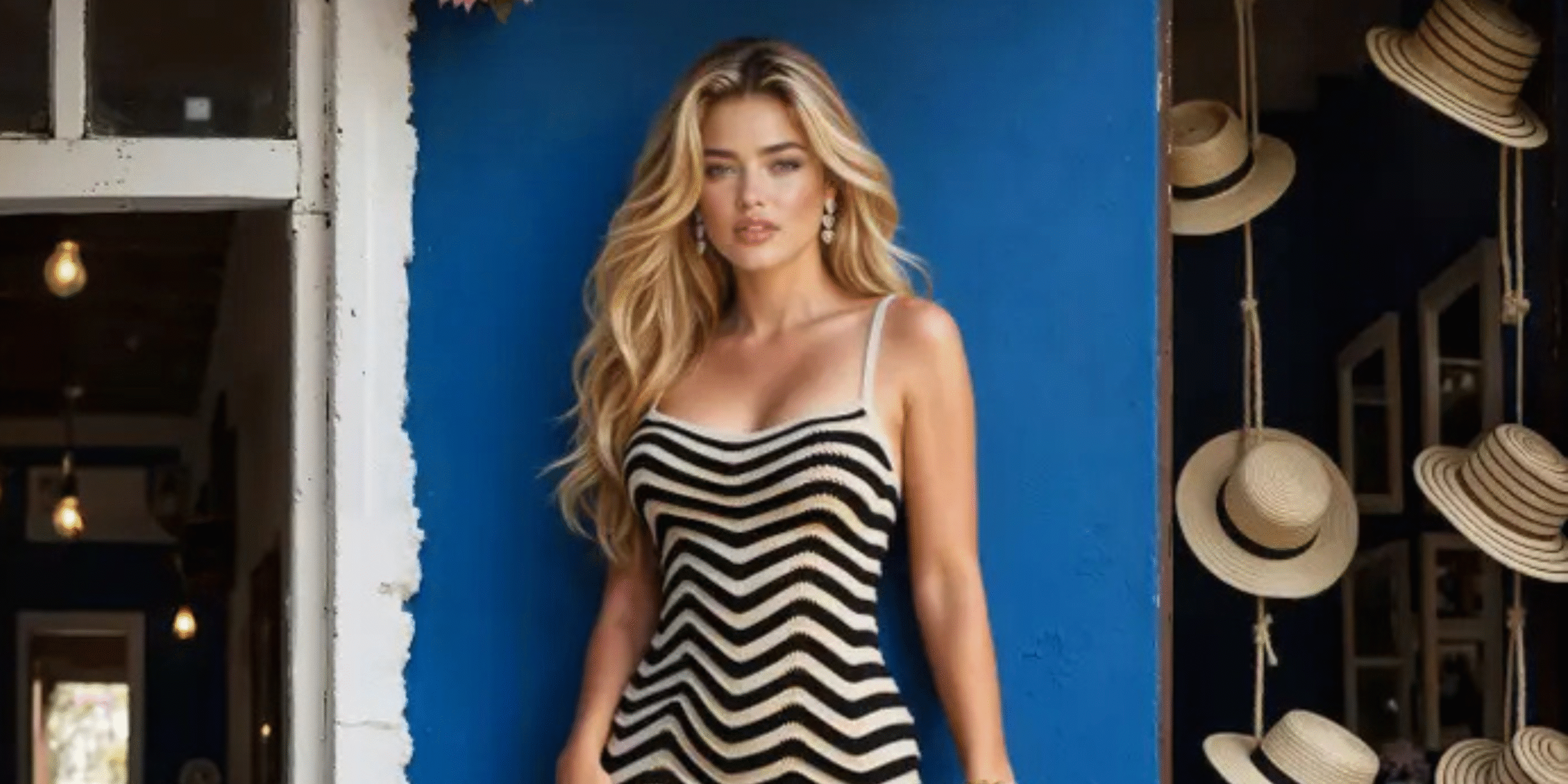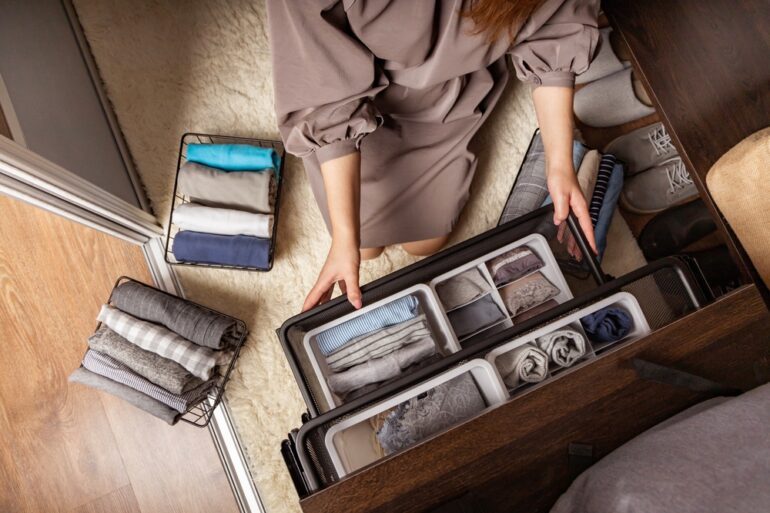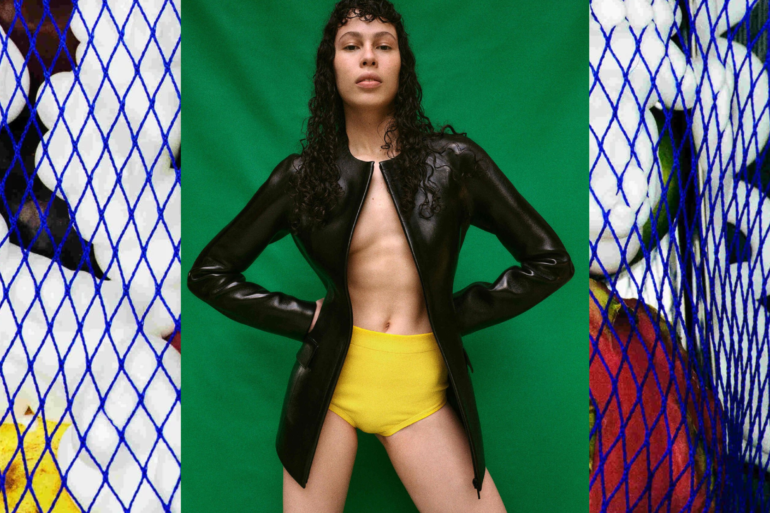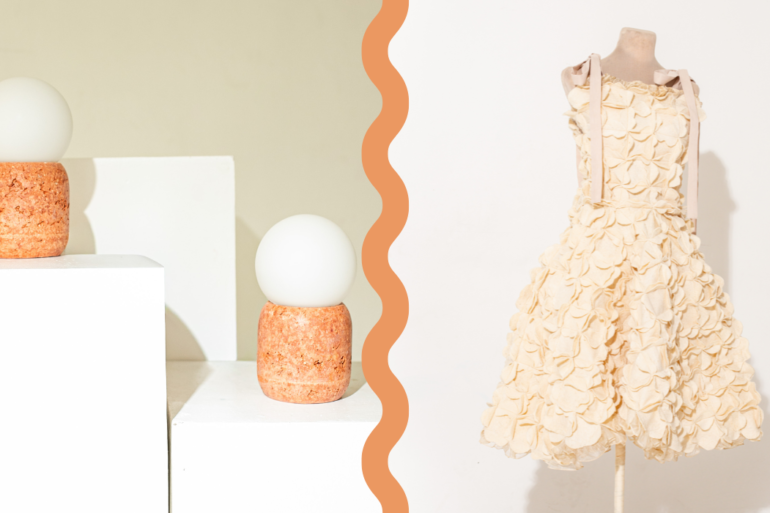As AI becomes more common, industry professionals continue to debate its impact. Some see it as a useful tool, while others are concerned that it could harm both workers and consumers.
An AI-generated model featured in a Guess advertisement published in the August 2025 issue of Vogue has triggered widespread conversation online and within the fashion industry.
The ad, which shows a blonde woman in a striped dress and a floral romper, includes a small-print disclaimer: “Produced by Seraphinne Vallora on AI.” Though the model appears human, she was entirely computer-generated using artificial intelligence. The ad quickly went viral after TikTok user @lala4an highlighted it in a video that received over 2 million views in three days, according to a report by BuzzFeed.
Related story: Is Google dying or evolving? Inside the tech giant’s race to stay relevant in the AI era
Related story: Is ChatGPT making our brains lazy?
This marks the first time an AI-generated model has appeared in Vogue, though the magazine stated it was not an editorial decision, but a paid advertisement.






Seraphinne Vallora, founded by Valentina Gonzalez and Andreea Petrescu, uses artificial intelligence to design marketing visuals. According to the BBC, Guess co-founder Paul Marciano contacted the company via Instagram and asked for a selection of AI-generated models. From ten drafts, two were chosen and developed for the final campaign.
Related story: A closer look at how generative AI is really being used in 2025
Related story: Sick of Google’s AI summaries? Try swearing at it instead
Related story: Germany has a new tourism ambassador—and she was created by AI



“We want to harness the incredible power of AI to revolutionize marketing images. We realized that AI offered a hassle-free path to design brilliance. No more expensive travel or complicated arrangements. We wanted to make campaigns accessible to companies of all sizes. An easy solution to market their products without logistical stress,” the company states on its website. In other words, it promotes AI as a way to cut costs by reducing the need for traditional production elements such as makeup artists, venue rentals, photographers, and travel—all of which are jobs people rely on for income.
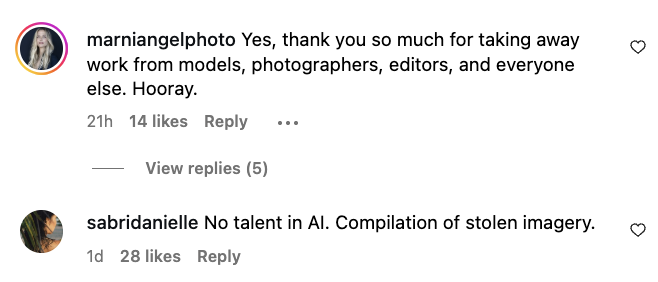


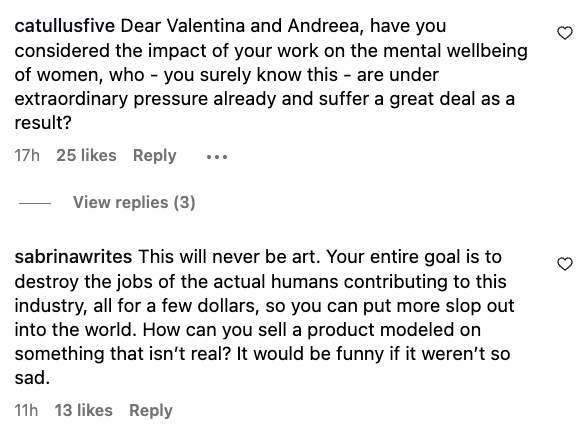


Seraphinne Vallora’s Instagram page, which has over 225k followers, features dozens of AI-generated women with symmetrical faces, clear skin, and slim figures. “At the end of the day, we are a business and use images on Instagram that will create a conversation and bring us clients.” the company told BBC.
Psychologist Dr. Helena Lewis-Smith, who specializes in body image at the University of the West of England, told Metro UK that the use of AI in modeling continues a long history of image manipulation in advertising. “Even people who are deemed perfect are still not perfect enough,” she said. “Using AI will have a damaging effect, and it’s still portraying this unattainable beauty standard.”



As of now, there are no legal requirements in the UK or US to label AI-generated content in advertising. While the Guess ad did include a disclosure, critics argue that its subtle placement could easily go unnoticed.
Former model and tech entrepreneur Sinead Bovell wrote in Vogue back in 2020 about how AI could change the modeling industry. In her article, “I Am a Model and I Know that Artificial Intelligence Will Eventually Take My Job,” she warned that AI models would soon be able to learn, pose independently, and replace the type of commercial modeling many people rely on for income.



She also raised concerns about representation, writing: “If the creators can’t actually identify with the experiences and groups that these models claim to belong to (i.e., person of color, LGBTQ, etc.), then do they have the right to actually speak on those issues? Or is this a new form of robot cultural appropriation, one in which digital creators are dressing up in experiences that aren’t theirs?”
Now, five years later, Bovell says the shift is already happening. Speaking to the BBC, she said “not labelling AI content clearly is ‘exceptionally problematic’ and warned that it’s already affecting how people—especially young women—see themselves. “Beauty standards are already being influenced by AI. There are young girls getting plastic surgery to look like a face in a filter and now we see people who are entirely artificial.”
As AI becomes more common, industry professionals continue to debate its impact. Some see it as a useful tool, while others are concerned that it could harm both workers and consumers. Dr. Lewis-Smith suggests one possible solution is to improve media literacy through education, helping people better understand the difference between real and AI-generated images.

